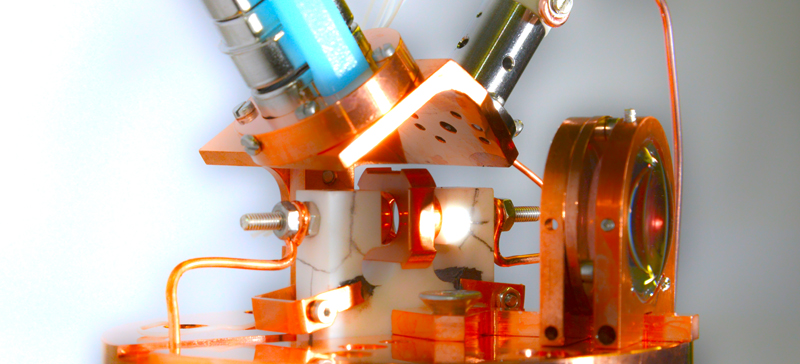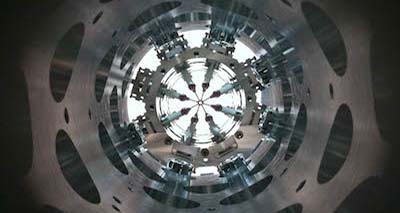At the Precision Frontier, we focus on table top precision experiments with the aim to advance our knowledge of particle physics by performing low energy, extremely high precision experiments using cold atoms and molecules. Its objective is closely related to that of the High-Energy Frontier, in particular regarding theoretical studies.
Experiment and theory work closely together in this frontier. The experimental efforts are focused on high-precision experiments in atomic, molecular, and nuclear systems. The theoretical efforts are focused on studies of P- and T-violation effects in atoms and molecules with state-of-the-art computational atomic and molecular structure theory and on predictions of symmetry-breaking effects in low-energy particle physics with effective field theory techniques.
The main focus of the Precision Frontier is the search for the T-violating electric dipole moment of the electron (eEDM) in an experiment with laser-cooled BaF molecules that are first slowed down in a decelerator and then trapped. The search for EDMs is recognized for its prime discovery potential in the roadmap of particle physics world-wide. Our programme, organized within a consortium of VSI members and collaborators at the VU in Amsterdam and at UvA connects to several ongoing and planned eEDM searches by leading groups in the UK and the US.
In addition, ion manipulation and trapping techniques are applied to study exotic atomic nuclei as well as antihydrogen (locally and in the context of the ALPHA experiment at CERN). Precision mass measurements of short-lived atomic nuclei are performed at various international accelerator facilities. In parallel, a local experiment called NEXT aims to study neutron-rich nuclei at the AGOR cyclotron. These measurements are relevant for nuclear-structure and function as input parameters for the modeling of nuclear astrophysics processes.


